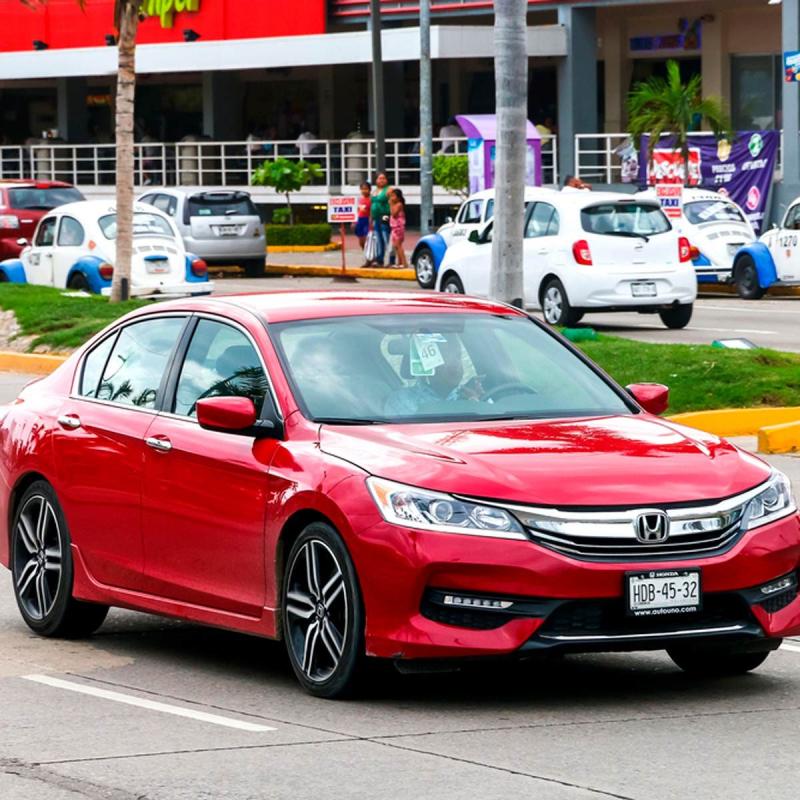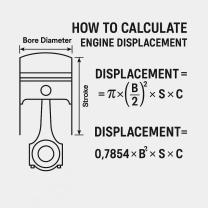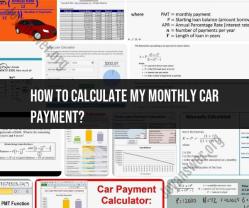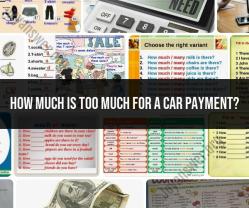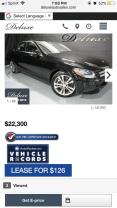What used cars are good?
Determining what used cars are good depends on various factors, including your specific needs, budget, and personal preferences. When evaluating used cars, consider the following factors:
Reliability:
- Look for cars with a reputation for reliability. Check reviews, consumer reports, and reliability ratings from sources like J.D. Power, Consumer Reports, or automotive magazines.
Maintenance History:
- Obtain the maintenance records for the used car you're considering. A well-documented history of regular maintenance is a positive sign.
Vehicle History Report:
- Use a service like Carfax or AutoCheck to obtain a vehicle history report. This report can reveal important information, such as accidents, title issues, and odometer readings.
Ownership Costs:
- Consider the overall ownership costs, including fuel efficiency, insurance, maintenance, and repair costs. Some cars may have higher upfront costs but lower long-term expenses.
Budget:
- Determine your budget and stick to it. Consider not only the purchase price but also potential additional costs like taxes, registration, and any necessary repairs or upgrades.
Fuel Efficiency:
- Evaluate the fuel efficiency of the used car. A more fuel-efficient vehicle can save you money on gas in the long run.
Safety Features:
- Check for important safety features, such as airbags, anti-lock brakes, stability control, and modern safety technologies. Look at crash test ratings from organizations like the National Highway Traffic Safety Administration (NHTSA) and the Insurance Institute for Highway Safety (IIHS).
Model Year:
- While newer models often come with updated features, they may also have a higher price tag. Consider the balance between features and budget.
Resale Value:
- Some cars retain their value better than others. Research the resale value of the model you're interested in to understand its depreciation rate.
Consumer Reviews:
- Read reviews from other consumers who have owned the same make and model. This can provide insights into real-world experiences.
Test Drive:
- Always take the car for a test drive. Pay attention to how it handles, any unusual noises, and the overall driving experience.
Certified Pre-Owned (CPO) Programs:
- Consider certified pre-owned options from manufacturers' CPO programs. These vehicles often undergo rigorous inspections and come with extended warranties.
Dealer Reputation:
- If buying from a dealership, research the dealership's reputation. Look for reviews and ratings to ensure a positive buying experience.
Availability of Parts:
- Check the availability and cost of replacement parts for the specific make and model. Some cars may have more expensive or harder-to-find parts.
Personal Preferences:
- Consider your own preferences, such as the size of the vehicle, its features, and whether it meets your lifestyle needs.
Ultimately, the "best" used car is one that aligns with your specific requirements, offers good reliability, and fits within your budget. Conduct thorough research, take your time during the buying process, and, if possible, consult with a trusted mechanic or automotive expert before making a purchase.
Factors to consider when buying a used car
Purchasing a used car can be a cost-effective and practical decision, but it's crucial to approach the process with caution and consideration to make an informed choice. Here are some key factors to consider when buying a used car:
Budget: Determine your budget beforehand to narrow down your options and avoid overspending. Consider factors like financing options, insurance costs, and potential maintenance expenses.
Needs and Preferences: Assess your primary needs and preferences in a vehicle. Consider factors like passenger capacity, cargo space, fuel efficiency, performance, and desired features.
History and Condition: Thoroughly inspect the car's history report, including accident records, maintenance records, and mileage. Check for any signs of damage, rust, or wear and tear.
Test Drive: Take the car for a comprehensive test drive to evaluate its handling, performance, and overall condition. Pay attention to any unusual noises, vibrations, or performance issues.
Professional Inspection: Consider getting the car inspected by a qualified mechanic to identify any potential mechanical problems that may not be apparent during the test drive.
Negotiation: Negotiate the price confidently and realistically. Research the car's fair market value and be prepared to walk away if the seller is unwilling to meet your reasonable offer.
Top-rated used cars for reliability, fuel efficiency, and affordability
Toyota Camry: Renowned for its reliability, fuel efficiency, and spacious interior, the Camry consistently ranks among the top used cars for value.
Honda Accord: Another reliable and fuel-efficient option, the Accord offers a comfortable ride and a range of trim levels to suit different needs.
Toyota Corolla: A compact car known for its affordability, reliability, and fuel efficiency, the Corolla is a popular choice for budget-conscious buyers.
Honda Civic: A versatile compact car with a reputation for reliability and fuel efficiency, the Civic offers a balance of practicality and fun-to-drive performance.
Subaru Legacy: A reliable and spacious sedan with a focus on safety, the Legacy offers all-wheel drive options for enhanced handling in various weather conditions.
Best used cars for families, off-roading, and performance driving
Toyota Sienna: A reliable and family-friendly minivan, the Sienna offers ample seating, cargo space, and safety features.
Honda Odyssey: Another top-rated minivan, the Odyssey provides a spacious interior, comfortable seating, and advanced entertainment features.
Jeep Wrangler: A rugged and capable SUV, the Wrangler is ideal for off-road enthusiasts, offering exceptional handling and performance in challenging terrain.
Toyota Land Cruiser: A legendary off-road SUV, the Land Cruiser provides exceptional durability, capability, and luxury amenities.
Mazda Miata MX-5: A fun and affordable roadster, the Miata offers a thrilling driving experience with lightweight handling and responsive steering.
Tips for negotiating the best price on a used car
Do Your Research: Before entering negotiations, research the car's fair market value using online resources like Kelley Blue Book or Edmunds.
Start Low: Begin the negotiation with a lower offer than your target price, leaving room for negotiation.
Be Prepared to Walk Away: Don't feel obligated to accept the seller's initial offer. Be prepared to walk away if the negotiation doesn't reach your desired price point.
Consider Financing Options: If financing is necessary, research interest rates and pre-approve for a loan before negotiating the car's price.
Be Polite and Professional: Maintain a polite and professional demeanor throughout the negotiation. Avoid emotional outbursts or aggressive tactics.
Resources for finding and buying a used car
Online Classifieds: Websites like Craigslist, Facebook Marketplace, and Autotrader offer a vast selection of used cars from private sellers and dealerships.
Online Car Buying Platforms: Platforms like CarGurus, CarMax, and TrueCar provide a user-friendly interface to search for used cars, compare prices, and get pre-approvals for financing.
Dealerships: Reputable used car dealerships offer a variety of options, inspections, and warranties, but may have higher prices than private sellers.
Online Car Auctions: Platforms like eBay Motors and Manheim provide online auctions for used cars, offering opportunities to find rare or unique vehicles.
Car Buying Services: Services like Carvana and WheelHero offer a more personalized approach to used car buying, handling inspections, paperwork, and delivery.
